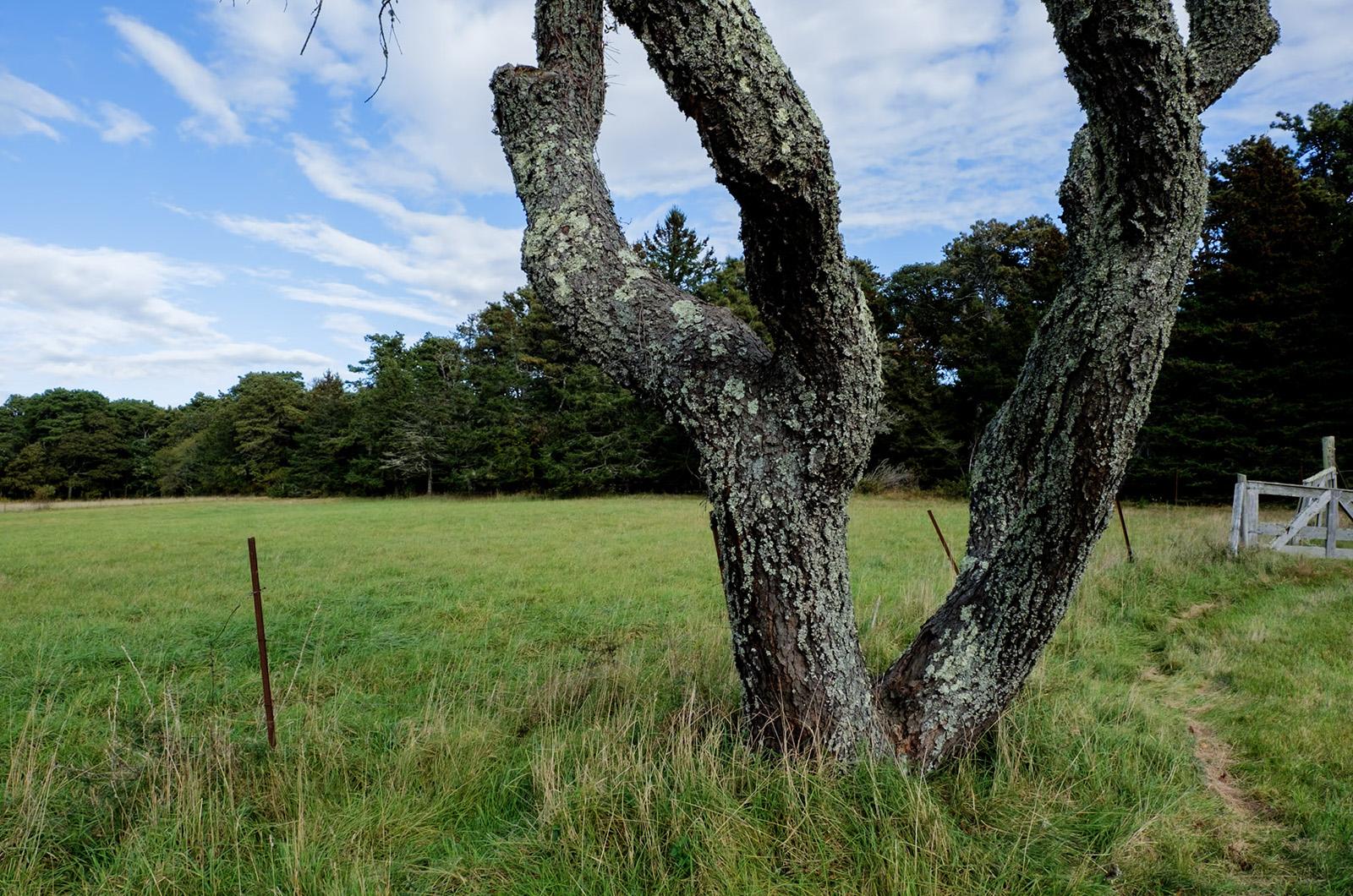The planned purchase of Pimpneymouse Farm on Chappaquiddick by the land bank and Sheriff’s Meadow Foundation marks a milestone in the long history of land conservation on Martha’s Vineyard that is both significant and symbolic.
Encompassing 166 acres, the nearly century-old coastal farm in the heart of Chappy, is one of the last large undeveloped parcels on Martha’s Vineyard to be preserved for future generations.
But it is also fitting recognition for the late Edo Potter, whose family owned Pimpneymouse Farm, one of a handful of forward-thinking Islanders who took the first steps in the late 1960s and early 1970s to protect the Island from looming over-development. Their efforts included widespread open space protection, enacting zoning and the creation of the Martha’s Vineyard Commission.
When the state announced last week that it would contribute $1.25 million toward the $13.78 million conservation purchase, it amounted to further recognition for Ms. Potter, whose long legacy of public service on the Vineyard included serving as the state representative on the land bank.
Sheriff’s Meadow and the land bank will share the remainder of the cost to buy the majority of the farm, while about 35 acres will remain in the hands of the Potter-Slater descendants. Sheriff’s Meadow still needs to raise $1.5 million before the deal can be completed.
The collaboration between the two leading Island land trusts — one a government organization funded by fees on real estate sales, the other a nonprofit funded by donations — is the second such partnership in the last three years. In 2021 the two joined forces to buy Red Gate Farm in Aquinnah, another key conservation initiative. With more than one multi-million-dollar capital campaign under way on the Island these days and fierce competition for fundraising dollars, collaborations like these send a strong message that the conservation groups are serious about continuing their vital mission on the Vineyard.
And conservation remains as important as ever as the specter of overdevelopment anticipated by the likes of Edo Potter grows ever closer.
As the Island focuses on another important priority — the critical need for affordable housing — there is a danger that the measures taken years ago to protect the Island’s rural character will be cast aside. The Island can balance both priorities, without pitting one against another.
As a beautiful autumn takes hold across the Island this month, at Pimpneymouse Farm the rolling meadows and hayfields have begun to turn gold and russet, dotted with the last of the late asters. The farm’s vast, pristine marshlands that ring Poucha Pond are alive with migratory waterfowl. Charles Welch, Edo’s father, who started the farm in 1932, prized the marshlands for duck hunting.
Today those marshlands are prized for another ecological attribute: their ability to protect uplands from the encroaching sea by absorbing storm surge. Coastal wetlands also store carbon. In that way, the Pimpneymouse Farm purchase can be seen as an important climate change initiative.
Edo Potter would have championed that.




Comments
Comment policy »